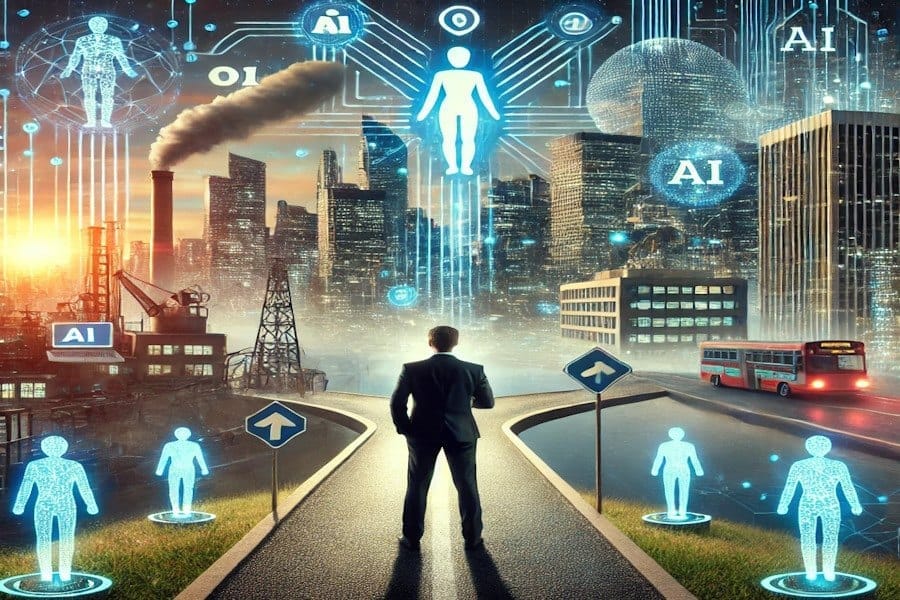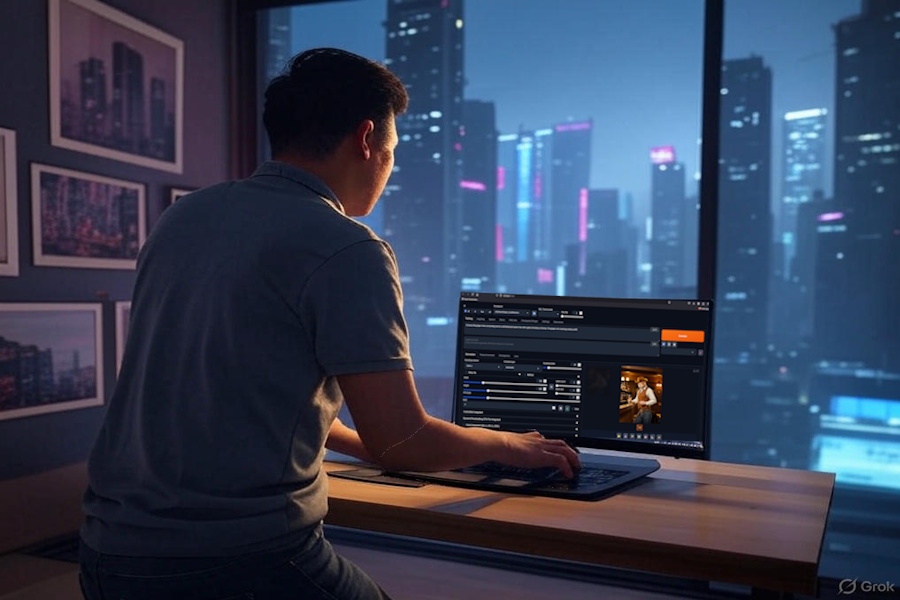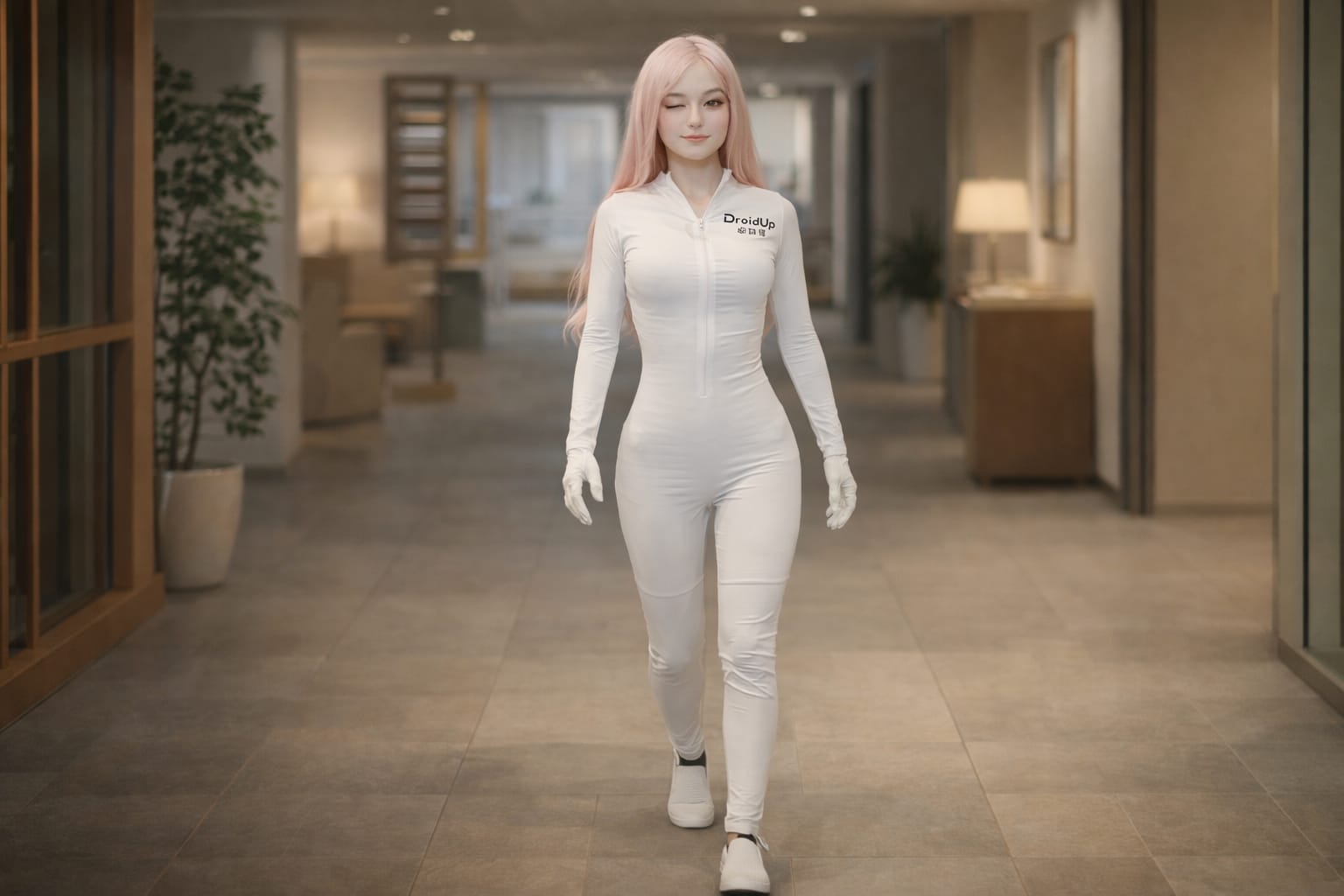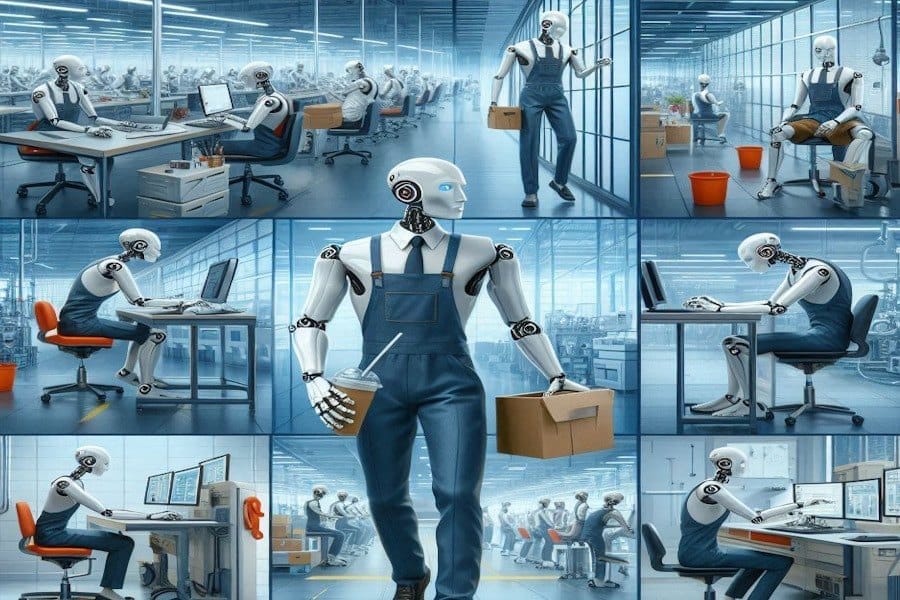AI Washing and the Quiet Transformation of Middle-Class Employment

Publish Date: Last Updated: 10th February 2025
Author: nick smith- With the help of CHATGPT
Once heralded as pillars of security and stability, traditional careers in banking and other middle-class professions are undergoing seismic changes. From the closure of bank branches to the rise of AI replacing human labor, the employment landscape is shifting rapidly, leaving millions to question the future of work.
This article explores the nuanced impacts of artificial intelligence (AI) on middle-class employment, the myths and realities of AI’s potential, and what society must do to navigate this profound transformation.
The Decline of Middle-Class Security
The Evolution of Work
For decades, the middle class thrived as countries like the UK transitioned from manufacturing-based economies to service and finance-driven ones. This shift created professional opportunities, particularly in urban areas around London, while devastating the industrial north. Over time, finance and tech jobs became the go-to recommendations for career stability. However, the rapid advancement of AI is challenging this notion.
AI: A New Disruptor
Artificial intelligence is now poised to disrupt middle-class professions in ways akin to the automation of manufacturing. Tasks once requiring human input—whether in banking, programming, or customer service—are increasingly handled by AI systems. This quiet revolution is already resulting in significant layoffs across industries, with more upheaval on the horizon.
The Hype and Realities of AI
AI Hype: FOMO and Overpromising
The current AI gold rush is reminiscent of the early days of the internet. Companies, driven by fear of missing out (FOMO), are investing heavily in AI without fully understanding its implications or practical applications. This often leads to inflated expectations and hasty implementations.
- AI Washing: Similar to "greenwashing," companies are rebranding existing products and services as "AI-powered" to attract attention and funding, even when AI's role is minimal.
- Investor Caution: Much like the dot-com bubble, the AI industry could face a reckoning if expectations outpace reality.
AI Realities: Groundbreaking but Imperfect
AI is one of humanity's most transformative achievements, but it is still in its infancy. While capable of remarkable feats—such as diagnosing diseases, generating content, and analyzing vast datasets—AI remains imperfect and prone to inconsistencies.
Facts About AI
- Data Dependency: AI relies on massive datasets to function. The internet's wealth of information has accelerated its development, but this dependency raises concerns about data quality and bias.
- Narrow Intelligence: Despite advancements, AI is limited to specific tasks and lacks the general intelligence humans possess.
- Learning Gaps: Developers themselves often struggle to fully understand how complex AI models reach their conclusions, complicating efforts to ensure reliability and fairness.
The Impact on Employment
Job Losses and Industry Transformation
AI is reshaping the workforce at an unprecedented pace. Companies like IBM, Shopify, and UPS have already laid off thousands due to AI adoption. By the end of 2024, the tech sector alone is expected to lose over 270,000 jobs.
Key Areas of Impact
- Programming: AI tools are automating code generation, reducing the need for junior developers. This threatens the pipeline for cultivating senior talent.
- Administrative Roles: AI can handle tasks like data entry, report generation, and customer service more efficiently than humans, leading to widespread redundancies.
- Creative Professions: AI is encroaching on fields once considered uniquely human, such as music, writing, and design.
AI and Robotics: A Double Threat
Advances in robotics, combined with AI, are making machines capable of performing physical tasks traditionally reserved for humans. Amazon already employs over 750,000 robots in its warehouses, and humanoid robots are poised to take on roles in retail, hospitality, and beyond.
Utopia or Dystopia?
The rapid adoption of AI raises questions about the future of society. Will we embrace a utopia where technology provides more leisure time and universal basic income, or descend into a dystopia of mass unemployment and inequality?
Challenges to Address
- Economic Restructuring: With fewer people working, governments must find alternative ways to fund public services. Universal basic income, funded by taxes on AI-driven industries, could be one solution.
- Job Creation: AI will create new types of jobs, but training and upskilling programs are essential to prepare workers for these roles.
- Ethical Governance: Policymakers must establish regulations to ensure AI development benefits society as a whole, rather than exacerbating inequality.
The Myths of AI
While AI's potential is immense, misconceptions abound. It’s important to separate fact from fiction to manage expectations.
-
Myth: AI will instantly replace all jobs.
Reality: AI will augment human roles first, reducing workforce size gradually but not eliminating entire professions overnight. -
Myth: AI is fully autonomous and independent.
Reality: AI still requires human oversight and intervention, particularly in complex or high-stakes tasks.
Is AI a Bubble Waiting to Pop?
History suggests that technological revolutions often experience a "hype cycle" of inflated expectations, disillusionment, and eventual stabilization. While the AI industry may face a bubble burst, its foundational technologies are robust enough to ensure long-term relevance.
The Coming Tsunami of Job Losses
The convergence of AI, robotics, and automation is creating a "perfect storm" for the workforce. Unlike previous industrial revolutions, which affected specific sectors, this wave of innovation threatens to disrupt nearly every profession.
Implications for Society
- Taxation Challenges: With fewer workers paying taxes, governments must rethink how to fund public services.
- Social Strain: Rising unemployment could lead to civil unrest if not addressed proactively.
- Opportunities for Reinvention: Societies can leverage AI to reduce working hours, improve quality of life, and focus on creative and social pursuits.
Conclusion
AI represents both an incredible opportunity and a formidable challenge. While its potential to improve efficiency and innovation is undeniable, the societal disruptions it may cause demand careful planning and ethical governance. By addressing these challenges head-on, we can harness AI’s power to create a more equitable and prosperous future for all.
Trending AI News Articles
AI Questions and Answers section for AI Washing and the Quiet Transformation of Middle-Class Employment
Welcome to a new feature where you can interact with our AI called Jeannie. You can ask her anything relating to this article. If this feature is available, you should see a small genie lamp above this text. Click on the lamp to start a chat or view the following questions that Jeannie has answered relating to AI Washing and the Quiet Transformation of Middle-Class Employment.
Be the first to ask our Jeannie AI a question about this article
Look for the gold latern at the bottom right of your screen and click on it to enable Jeannie AI Chat.









